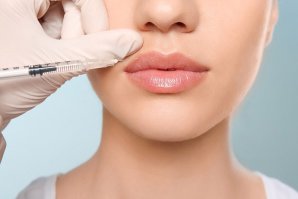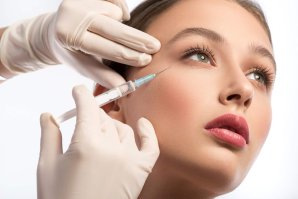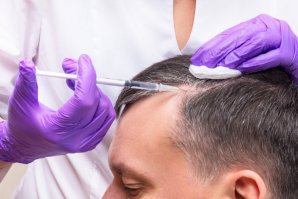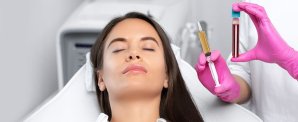What is a D3 Injection?
A D3 injection is an intramuscular shot that delivers vitamin D3 (cholecalciferol) directly into the bloodstream. Unlike oral supplements, which must be processed through the digestive system, injections ensure rapid and complete absorption of vitamin D3, making them a preferred choice for individuals with severe deficiencies or malabsorption issues.
Benefits of D3 Injections
1. Rapid Absorption and Increased Bioavailability
D3 injections bypass the digestive system, allowing for faster absorption and increased bioavailability. This is particularly beneficial for people with conditions like Crohn’s disease, celiac disease, or irritable bowel syndrome (IBS), which can impair nutrient absorption.
2. Effective for Severe Deficiencies
Individuals diagnosed with severe vitamin D deficiency often require high-dose supplementation. D3 injections provide an immediate boost, helping to restore optimal levels more quickly than oral supplements.
3. Supports Bone Health
Vitamin D is crucial for calcium absorption, which is necessary for maintaining strong bones and preventing conditions like osteoporosis and rickets. Regular D3 injections can help improve bone density, especially in older adults.
4. Enhances Immune Function
Adequate vitamin D levels are essential for a robust immune system. Research suggests that vitamin D helps reduce the risk of infections, including respiratory infections and influenza.
5. Boosts Mood and Mental Health
Vitamin D plays a role in regulating mood and preventing seasonal affective disorder (SAD), depression, and anxiety. People with low vitamin D levels often experience fatigue and mood swings, which can be alleviated through supplementation.
6. May Support Heart Health
Emerging studies indicate that vitamin D deficiency is linked to an increased risk of cardiovascular diseases, including high blood pressure and heart disease. Maintaining adequate vitamin D levels may contribute to better heart health.
Who Needs a D3 Injection?
D3 injections are recommended for individuals who:
-
Have a severe vitamin D deficiency (confirmed through blood tests)
-
Suffer from malabsorption disorders (e.g., Crohn’s disease, celiac disease, IBS)
-
Have osteoporosis or weak bones
-
Experience chronic fatigue, muscle weakness, or joint pain
-
Have limited sun exposure (e.g., people living in colder climates or those who wear full-body clothing for cultural reasons)
-
Suffer from seasonal depression or mood disorders
-
Are pregnant or breastfeeding women who require higher vitamin D levels
How is a D3 Injection Administered?
A D3 injection is typically given in a medical setting by a healthcare professional. It is injected intramuscularly, usually into the deltoid (upper arm) or gluteal (buttock) muscle. The dosage varies depending on the individual’s deficiency level, but common doses range from 100,000 IU to 600,000 IU per injection.
Frequency of Injections
-
Mild deficiency: One injection every few months
-
Severe deficiency: Weekly or monthly injections, as prescribed by a doctor
-
Maintenance dose: Quarterly or semi-annual injections
Potential Side Effects and Risks
While D3 injections are generally safe, some people may experience side effects, including:
-
Pain or swelling at the injection site
-
Nausea, vomiting, or loss of appetite
-
Increased calcium levels (hypercalcemia), which can cause kidney stones, confusion, and heart irregularities
-
Allergic reactions (though rare)
Can You Overdose on Vitamin D3?
Yes, excessive vitamin D intake can lead to toxicity, known as hypervitaminosis D. This condition results in high calcium levels in the blood, leading to symptoms such as:
-
Excessive thirst and frequent urination
-
Weakness, nausea, and vomiting
-
Kidney problems and kidney stones
To avoid toxicity, it is essential to follow your doctor's prescribed dosage and monitor vitamin D levels regularly through blood tests.
Comparing D3 Injections to Oral Supplements
| Feature | D3 Injections | Oral Supplements |
|---|---|---|
| Absorption | High (direct into bloodstream) | Moderate (depends on digestion) |
| Speed of Action | Fast | Slow |
| Effectiveness | Higher, especially for severe deficiencies | Lower, may take months to restore levels |
| Administration | Requires a healthcare professional | Self-administered |
| Side Effects | Minimal when used correctly | Potential stomach discomfort |
Natural Ways to Increase Vitamin D Levels
While D3 injections are highly effective, maintaining adequate vitamin D levels naturally is also important. Here are some ways to boost your vitamin D levels:
1. Sunlight Exposure
-
Spend 15-30 minutes in the sun daily (without sunscreen) on arms and legs.
-
The best time for sun exposure is between 10 AM – 3 PM.
2. Consume Vitamin D-Rich Foods
-
Fatty fish (salmon, mackerel, sardines)
-
Egg yolks
-
Fortified dairy products (milk, yogurt, cheese)
-
Mushrooms exposed to sunlight
-
Beef liver
3. Take Vitamin D Supplements
For those who prefer oral supplements, vitamin D3 capsules or drops are available. Always take them with a meal that contains fat for better absorption.
Conclusion: Is a D3 Injection Right for You?
D3 injections are an excellent option for individuals with severe vitamin D deficiency or malabsorption issues. They offer rapid absorption, improved effectiveness, and long-lasting benefits compared to oral supplements. However, they should be administered under medical supervision to prevent overdose or side effects.


















































